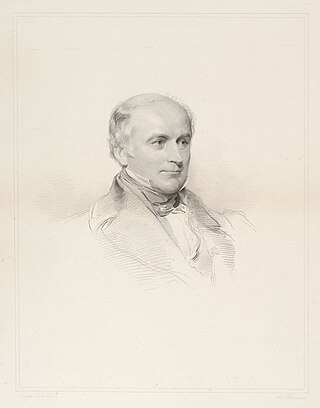Related Research Articles

A trust is a legal relationship in which the holder of a right gives it to another person or entity who must keep and use it solely for another's benefit. In the Anglo-American common law, the party who entrusts the right is known as the "settlor", the party to whom the right is entrusted is known as the "trustee", the party for whose benefit the property is entrusted is known as the "beneficiary", and the entrusted property itself is known as the "corpus" or "trust property". A testamentary trust is created by a will and arises after the death of the settlor. An inter vivos trust is created during the settlor's lifetime by a trust instrument. A trust may be revocable or irrevocable; an irrevocable trust can be "broken" (revoked) only by a judicial proceeding.

Trustee is a legal term which, in its broadest sense, is a synonym for anyone in a position of trust and so can refer to any individual who holds property, authority, or a position of trust or responsibility for the benefit of another. A trustee can also be a person who is allowed to do certain tasks but not able to gain income. Although in the strictest sense of the term a trustee is the holder of property on behalf of a beneficiary, the more expansive sense encompasses persons who serve, for example, on the board of trustees of an institution that operates for a charity, for the benefit of the general public, or a person in the local government.

A fiduciary is a person who holds a legal or ethical relationship of trust with one or more other parties. Typically, a fiduciary prudently takes care of money or other assets for another person. One party, for example, a corporate trust company or the trust department of a bank, acts in a fiduciary capacity to another party, who, for example, has entrusted funds to the fiduciary for safekeeping or investment. Likewise, financial advisers, financial planners, and asset managers, including managers of pension plans, endowments, and other tax-exempt assets, are considered fiduciaries under applicable statutes and laws. In a fiduciary relationship, one person, in a position of vulnerability, justifiably vests confidence, good faith, reliance, and trust in another whose aid, advice, or protection is sought in some matter. In such a relation, good conscience requires the fiduciary to act at all times for the sole benefit and interest of the one who trusts.
A fiduciary is someone who has undertaken to act for and on behalf of another in a particular matter in circumstances which give rise to a relationship of trust and confidence.

A constructive trust is an equitable remedy imposed by a court to benefit a party that has been wrongfully deprived of its rights due to either a person obtaining or holding a legal property right which they should not possess due to unjust enrichment or interference, or due to a breach of fiduciary duty, which is intercausative with unjust enrichment and/or property interference. It is a type of implied trust.

McPhail v Doulton[1970] UKHL 1, also known as Re Baden's Deed Trusts is a leading English trusts law case by the House of Lords on the certainty of beneficiaries. It held that so long as any given claimant can clearly be determined to be a beneficiary, or not, a trust is valid. The Lords also remanded the case to the Court of Appeal to be decided on this new legal principle as Re Baden's Deed Trusts .
In law a settlor is a person who settles property on trust law for the benefit of beneficiaries. In some legal systems, a settlor is also referred to as a trustor, or occasionally, a grantor or donor. Where the trust is a testamentary trust, the settlor is usually referred to as the testator. The settlor may also be the trustee of the trust or a third party may be the trustee. In the common law of England and Wales, it has been held, controversially, that where a trustee declares an intention to transfer trust property to a trust of which he is one of several trustees, that is a valid settlement notwithstanding the property is not vested in the other trustees.

A discretionary trust, in the trust law of England, Australia, Canada and other common law jurisdictions, is a trust where the beneficiaries and/or their entitlements to the trust fund are not fixed, but are determined by the criteria set out in the trust instrument by the settlor. It is sometimes referred to as a family trust in Australia or New Zealand. Where the discretionary trust is a testamentary trust, it is common for the settlor to leave a letter of wishes for the trustees to guide them as to the settlor's wishes in the exercise of their discretion. Letters of wishes are not legally binding documents.

English trust law concerns the protection of assets, usually when they are held by one party for another's benefit. Trusts were a creation of the English law of property and obligations, and share a subsequent history with countries across the Commonwealth and the United States. Trusts developed when claimants in property disputes were dissatisfied with the common law courts and petitioned the King for a just and equitable result. On the King's behalf, the Lord Chancellor developed a parallel justice system in the Court of Chancery, commonly referred as equity. Historically, trusts have mostly been used where people have left money in a will, or created family settlements, charities, or some types of business venture. After the Judicature Act 1873, England's courts of equity and common law were merged, and equitable principles took precedence. Today, trusts play an important role in financial investment, especially in unit trusts and in pension trusts. Although people are generally free to set the terms of trusts in any way they like, there is a growing body of legislation to protect beneficiaries or regulate the trust relationship, including the Trustee Act 1925, Trustee Investments Act 1961, Recognition of Trusts Act 1987, Financial Services and Markets Act 2000, Trustee Act 2000, Pensions Act 1995, Pensions Act 2004 and Charities Act 2011.

The three certainties refer to a rule within English trusts law on the creation of express trusts that, to be valid, the trust instrument must show certainty of intention, subject matter and object. "Certainty of intention" means that it must be clear that the donor or testator wishes to create a trust; this is not dependent on any particular language used, and a trust can be created without the word "trust" being used, or even the donor knowing he is creating a trust. Since the 1950s, the courts have been more willing to conclude that there was intention to create a trust, rather than hold that the trust is void. "Certainty of subject matter" means that it must be clear what property is part of the trust. Historically the property must have been segregated from non-trust property; more recently, the courts have drawn a line between tangible and intangible assets, holding that with intangible assets there is not always a need for segregation. "Certainty of objects" means that it must be clear who the beneficiaries, or objects, are. The test for determining this differs depending on the type of trust; it can be that all beneficiaries must be individually identified, or that the trustees must be able to say with certainty, if a claimant comes before them, whether he is or is not a beneficiary.

Armitage v Nurse [1997] EWCA Civ 1279 is the leading decision in English trusts law concerning the validity of exemption clauses. The Court of Appeal held that in English law trustee exemption clauses can validly exempt trustees from liability for all breaches of trust except fraud. Millet LJ gave the leading judgment.

Keech v Sandford[1726] EWHC J76 is a foundational case, deriving from English trusts law, on the fiduciary duty of loyalty. It concerns the law of trusts and has affected much of the thinking on directors' duties in company law. It holds that a trustee owes a strict duty of loyalty so that there can never be a possibility of any conflict of interest.

Boardman v Phipps [1966] UKHL 2 is a landmark English trusts law case concerning the duty of loyalty and the duty to avoid conflicts of interest.

Re Duke of Norfolk’s Settlement Trusts [1982] Ch 61 is an English trusts law case, which confirmed that a court has the inherent jurisdiction to remunerate a trustee.

Guinness plc v Saunders [1989] UKHL 2 is a UK company law case, regarding the power of the company to pay directors. It required that whatever rules exist for payment in the company's articles, they must be strictly observed.
Cowan v Scargill [1985] Ch 270 is an English trusts law case, concerning the scope of discretion of trustees to make investments for the benefit of their members. It held that trustees cannot ignore the financial interests of the beneficiaries.

Schmidt v Rosewood Trust Ltd[2003] UKPC 26 is a judicial decision concerning the information rights of a beneficiary under a discretionary trust. Although the judgment involved a question as to the law of the Isle of Man, the Privy Council's judgment in Schmidt v Rosewood was adopted into English law by Briggs J in Breakspear v Ackland[2008] EWHC 220 (Ch).

Butt v Kelson [1952] Ch 197 is a UK company law and English trusts law case concerning the right of a beneficiary to direct its trustees to exercise votes on company shares that the trust possesses.
Constructive trusts in English law are a form of trust created by the English law courts primarily where the defendant has dealt with property in an "unconscionable manner"—but also in other circumstances. The property is held in "constructive trust" for the harmed party, obliging the defendant to look after it. The main factors that lead to a constructive trust are unconscionable dealings with property, profits from unlawful acts, and unauthorised profits by a fiduciary. Where the owner of a property deals with it in a way that denies or impedes the rights of some other person over that property, the courts may order that owner to hold it in constructive trust. Where someone profits from unlawful acts, such as murder, fraud, or bribery, these profits may also be held in constructive trust. The most common of these is bribery, which requires that the person be in a fiduciary office. Certain offices, such as those of trustee and company director, are always fiduciary offices. Courts may recognise others where the circumstances demand it. Where someone in a fiduciary office makes profits from their duties without the authorisation of that office's beneficiaries, a constructive trust may be imposed on those profits; there is a defence where the beneficiaries have authorised such profits. The justification here is that a person in such an office must avoid conflicts of interest, and be held to account should he fail to do so.

The Attorney General for Hong Kong v Reid (UKPC)[1993] UKPC 2 was a New Zealand-originated trust law case heard and decided by the Judicial Committee of the Privy Council, where it was held that bribe money accepted by a person in a position of trust, can be traced into any property bought and is held on constructive trust for the beneficiary.

FHR European Ventures LLP v Cedar Capital Partners LLC[2014] UKSC 45 is a landmark decision of the United Kingdom Supreme Court which holds that a bribe or secret commission accepted by an agent is held on trust for his principal. In so ruling, the Court partially overruled Sinclair Investments (UK) Ltd v Versailles Trade Finance Ltd in favour of The Attorney General for Hong Kong v Reid (UKPC), a ruling from the Judicial Committee of the Privy Council on appeal from New Zealand.
References
- R Walker, ‘Some Trust Principles in the Pensions Context’ in AJ Oakley (ed) Trends in Contemporary Trust Law (Clarendon, Oxford 1996) 123, 131
- Lord Browne-Wilkinson, ‘Equity and its relevance to superannuation today’ (Leo Cussen Institute) cited in Crown v Stevedoring Employees Retirement Fund [2003] VSC 316, [34]
- DJ Hayton and C Mitchell, The Law of Trusts and Equitable Remedies (Sweet and Maxwell 2005) 9-295, 677, says that in ‘my firm opinion’ it is undermined by Schmidt v Rosewood Trust Ltd on its own terms in family trusts, also citing agreement from Lord Hoffmann and Lightman J.